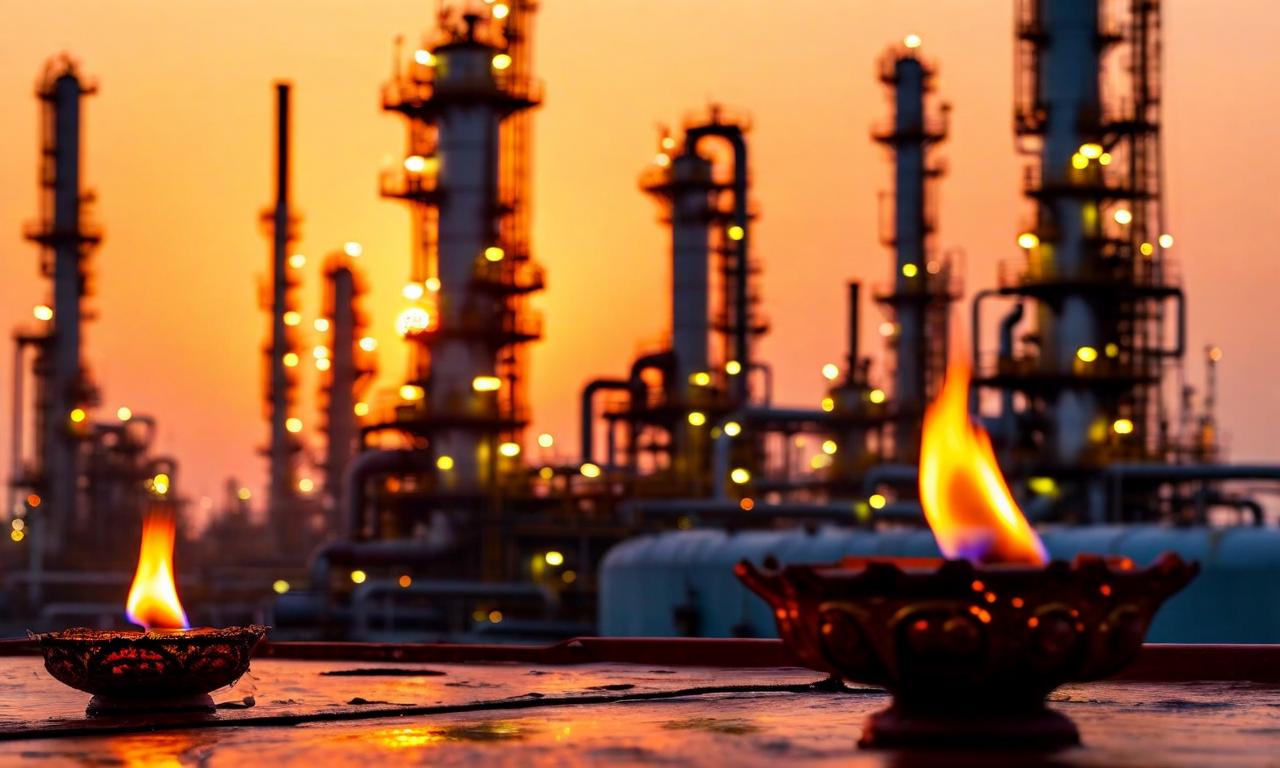Indian State Refiners Resume Russian Oil Purchases Amid US Tariff Threats
Indian Oil Corp. and Bharat Petroleum Corp. have resumed buying Russian Urals crude for September and October loading, despite escalating tensions with the US. The US threatens 50% tariffs on Indian imports, with half allegedly due to India's Russian oil trade. The decision is driven by deeper discounts on Russian crude, now at $2.50 per barrel. India maintains its oil import decisions are based on market factors and national interests, not external pressures. The move signals potential geopolitical shifts, with India seemingly moving closer to Russia and China.

*this image is generated using AI for illustrative purposes only.
Indian state-owned refiners Indian Oil Corp. and Bharat Petroleum Corp. have resumed their purchases of Russian Urals crude oil for September and October loading, following a brief pause. This decision comes amid escalating tensions with the United States, as threats of imposing 50% tariffs on Indian imports emerge, with half of these tariffs allegedly attributed to India's Russian oil trade.
US Criticism and Threats
The resumption of Russian oil purchases has drawn sharp criticism from US officials. White House Trade Adviser Peter Navarro accused India's oil lobby of profiteering from the trade, while Treasury Secretary Scott Bessent alleged that wealthy Indian families are benefiting from these transactions.
Market Factors and Discounts
The decision to resume purchases appears to be driven by market factors:
- The discount for Russian Urals crude has deepened to $2.50 per barrel, compared to $1.00 in July.
- This increased discount provides an additional incentive for Indian refiners.
- India maintains that its crude oil import decisions are based on market factors and national interests.
Geopolitical Implications
The ongoing tensions over oil trade have implications for India's international relations:
- India appears to be moving closer to Russia and China.
- Prime Minister Modi has referred to Russian President Putin as a friend.
- Modi is reportedly planning his first visit to China in seven years.
- This geopolitical shift comes after India had previously paused Russian oil buying following criticism and was asked to prepare pivot plans.
India's Stance
Despite the pressure from the US, India remains firm on its position:
- The country asserts that its crude imports are determined by market factors and national interests.
- India maintains that these decisions are not influenced by external pressures.
The situation highlights the complex interplay of global oil markets, geopolitical relationships, and economic interests. As India navigates these challenging waters, the decisions made by state refiners like Indian Oil Corp. and Bharat Petroleum Corp. will continue to be closely watched by international observers.



























